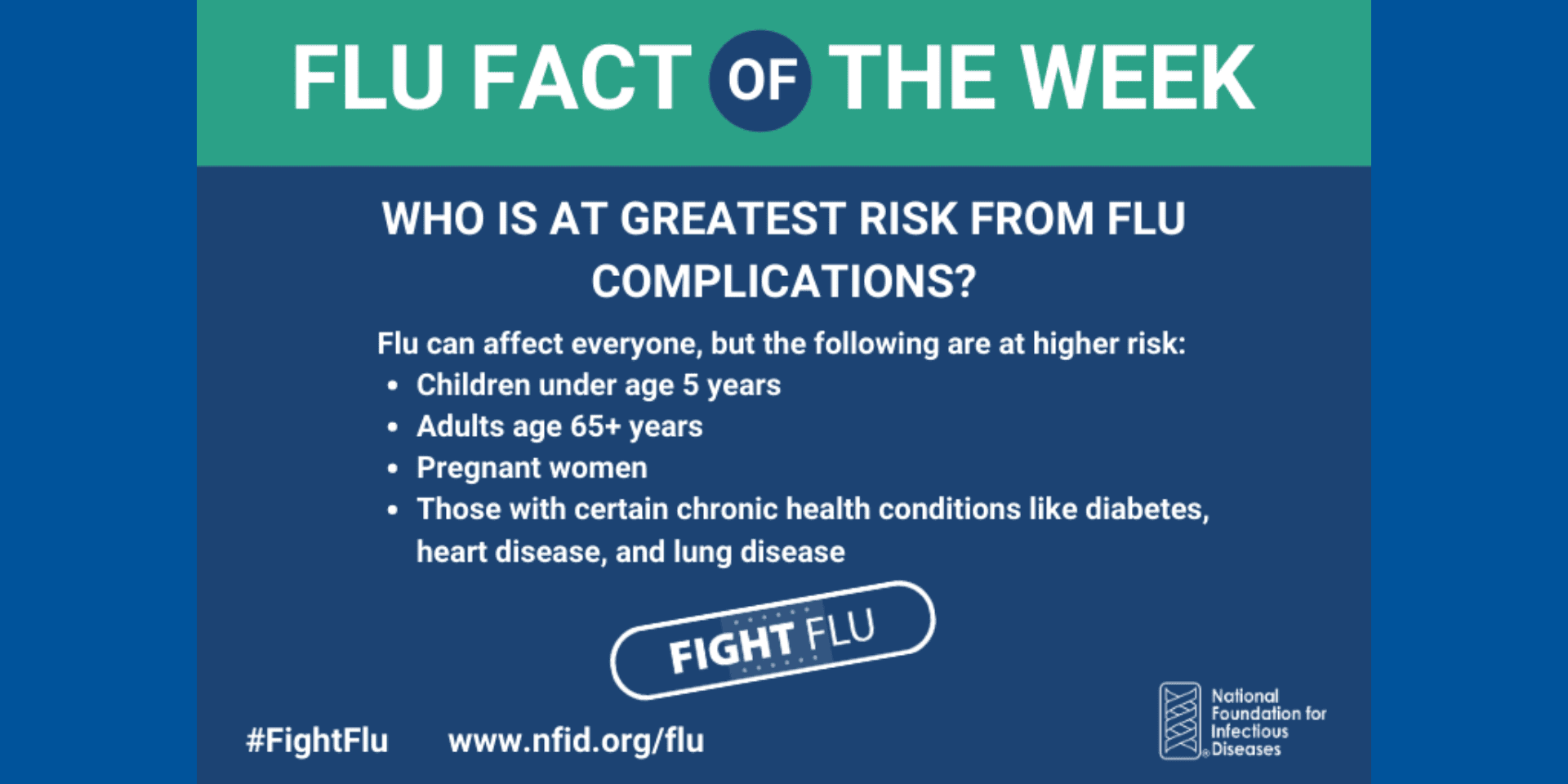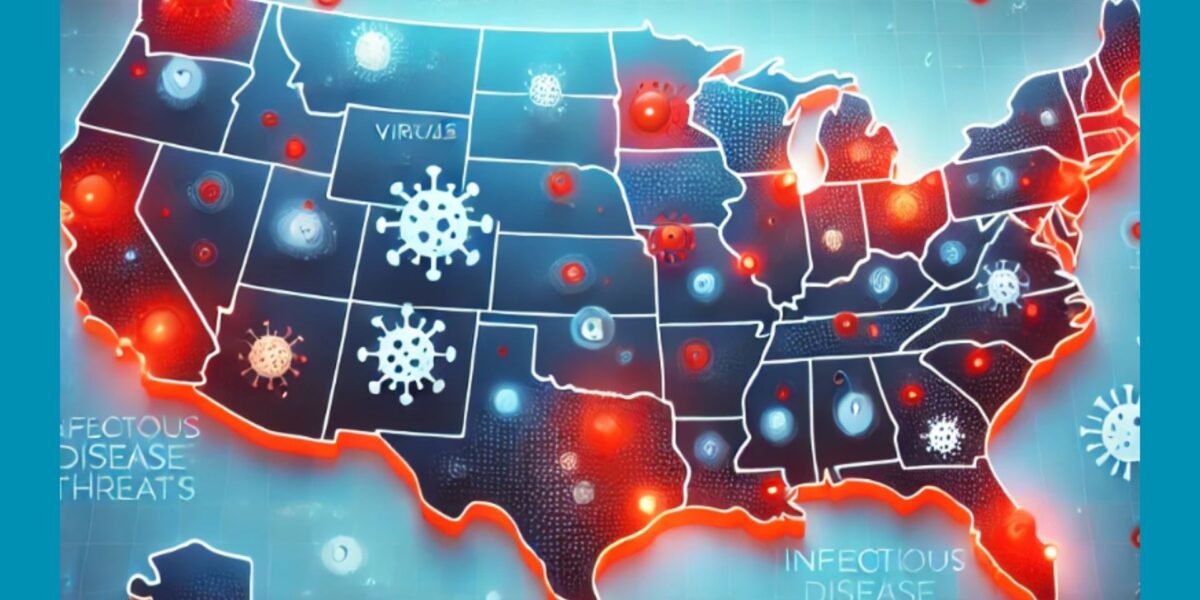
Influenza (flu) is still circulating widely throughout the US. Flu is unpredictable and can vary from season to season in terms of both timing and severity. Flu activity most commonly peaks in the US between December and February. The Centers for Disease Control and Prevention (CDC) recommends annual flu vaccination for everyone age 6 months and older as the first and most important step in protecting against this potentially serious disease.
To raise awareness about the importance of annual flu vaccination, the National Foundation for Infectious Diseases (NFID) participated in two recent Twitter chats to share valuable resources about flu prevention and treatment.
NFID co-sponsored the @EverydayHealth Twitter chat, #ItsStillFluSeason, on January 21, 2020 to address flu symptoms, treatment options, and vaccines. Highlights include:
A2: In the US, #flu season occurs in the fall and winter. While influenza viruses circulate year-round, flu activity typically peaks between December and February, but activity can last as late as May #ItsStillFluSeason pic.twitter.com/KQAnVxyhVi
— NFID (@NFIDVaccines) January 21, 2020
A6: #Flu #vaccines are safe and cannot cause flu! #ItsStillFluSeason #FightFlu https://t.co/KhcPjQxPMr pic.twitter.com/sNg59EnQVh
— NFID (@NFIDVaccines) January 21, 2020
A8: #Flu affects everyone—but children younger than 5 years old, adults 65+, pregnant women, & those with certain health conditions like #diabetes #HeartDisease & #LungDisease are at greater risk https://t.co/5OlDg1uH0Z #ItsStillFluSeason #GetVaccinated #LowerYourFluRisk pic.twitter.com/fzX6z2KSIN
— NFID (@NFIDVaccines) January 21, 2020
NFID also participated in a Twitter chat hosted by the National Hispanic Medical Association (@NHMAmd) on January 29, 2020, noting that ‘Flu Season Isn’t Over’ (#NHMAFluChat). NFID messages focused on the importance of annual vaccination for those at high risk of developing flu and related complications. Flu can lead to serious complications for individuals living with chronic health conditions such as heart disease, lung disease, and diabetes, even when chronic conditions are well-managed. Highlights include:
A3 #Flu can affect everyone, but children younger than age 5 years, adults age 65+, pregnant women, & people with certain chronic health conditions like diabetes, heart disease, & lung disease are at greater risk. https://t.co/sYzKP4U8H5 #NHMAFluChat #FightFlu #LowerYourFluRisk pic.twitter.com/IBjfmcXIOh
— NFID (@NFIDVaccines) January 29, 2020
A5 People with #diabetes are 3 times more likely to die from #flu-related complications. Annual flu vaccination can help reduce admissions for stroke, heart failure, and all-cause death for adults with Type 2 diabetes. #LowerYourFluRisk https://t.co/1FcuuNBBQe #NHMAFluChat pic.twitter.com/BEgRgpB5IU
— NFID (@NFIDVaccines) January 29, 2020
A6 Adults with heart disease are 6 times more likely to have a heart attack within 7 days of flu infection #GetVaccinated to #LowerYourFluRisk https://t.co/afgO08IrZh #NHMAFluChat #NHMAFlu #FightFlu pic.twitter.com/AI3hb7xajR
— NFID (@NFIDVaccines) January 29, 2020
If you have not yet received a flu vaccine this season, it’s not too late to #GetVaccinated to help #FightFlu!
To join the conversation, follow NFID on Twitter using the hashtags #FightFlu and #LowerYourFluRisk, like us on Facebook, follow us on Instagram, join the NFID Linkedin Group, and subscribe to receive future NFID Updates.
Related Posts

News Round-Up: Infectious Disease Threats
According to NFID website poll, there are several worrisome infectious disease threats. Read recent news on topics of greatest concern, including avian influenza (bird flu), measles, and respiratory syncytial virus (RSV) …

Vaccines and Heart Health: A Vital Connection
Heart disease can increase the risk of serious or fatal complications from respiratory diseases including COVID-19, flu, and RSV

Harnessing the Power of Local Data
NFID dashboard aims to empower stakeholders with hyperlocal data to increase US adult respiratory vaccine uptake
